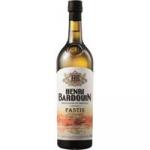10-09-2021, 07:57 PM
Some herbs, such as thyme, rosemary, savory and sage are actually harvested in Forcalquier.
The exact place and date of the harvest varies each year.
However, some always come from the same area, such as verbena citronella from Forcalquier.
Other items, including the spices, of course, arrive from more distant lands; China may supply the star anise, or the licorice may come from Syria. They extract the aromatic principles from the harvested and dried herbs.
We let them macerate in alcohol.
The temperature, time and alcohol content yield the desired taste.
The infusion is ended and extraction takes place.
In our press, we separate the infused liquid from the herb part to obtain the last juice to be added to the infusion. After the herbs are pressed, they still contain many aromas and essences.
By distilling them in our old still, we extract them.
Some infusions are also distilled to give them greater finesse. Mixing the infusions and distillates produces the flavoured spirit.
This flavoured spirit, a product of each of the herbs and spices, is what they need to assemble the product.
And this is the most delicate part of the process.
The volume of the infusions varies according to temperature, so the infusions are weighed as opposed to measured.
Their aromatic characteristics can vary also according to harvest.
The dosage of anethole and sugar are also crucial.
To keep the product's qualities constant, it is essential for a taster to analyze and taste the product at every stage of production. Final assembly, which must be perfectly executed, creates this symphony of aromas and flavours. Next there are the final inspections followed by the final tasting.
A taster directs this final phase.
The last procedure is bottling.
The exact place and date of the harvest varies each year.
However, some always come from the same area, such as verbena citronella from Forcalquier.
Other items, including the spices, of course, arrive from more distant lands; China may supply the star anise, or the licorice may come from Syria. They extract the aromatic principles from the harvested and dried herbs.
We let them macerate in alcohol.
The temperature, time and alcohol content yield the desired taste.
The infusion is ended and extraction takes place.
In our press, we separate the infused liquid from the herb part to obtain the last juice to be added to the infusion. After the herbs are pressed, they still contain many aromas and essences.
By distilling them in our old still, we extract them.
Some infusions are also distilled to give them greater finesse. Mixing the infusions and distillates produces the flavoured spirit.
This flavoured spirit, a product of each of the herbs and spices, is what they need to assemble the product.
And this is the most delicate part of the process.
The volume of the infusions varies according to temperature, so the infusions are weighed as opposed to measured.
Their aromatic characteristics can vary also according to harvest.
The dosage of anethole and sugar are also crucial.
To keep the product's qualities constant, it is essential for a taster to analyze and taste the product at every stage of production. Final assembly, which must be perfectly executed, creates this symphony of aromas and flavours. Next there are the final inspections followed by the final tasting.
A taster directs this final phase.
The last procedure is bottling.



